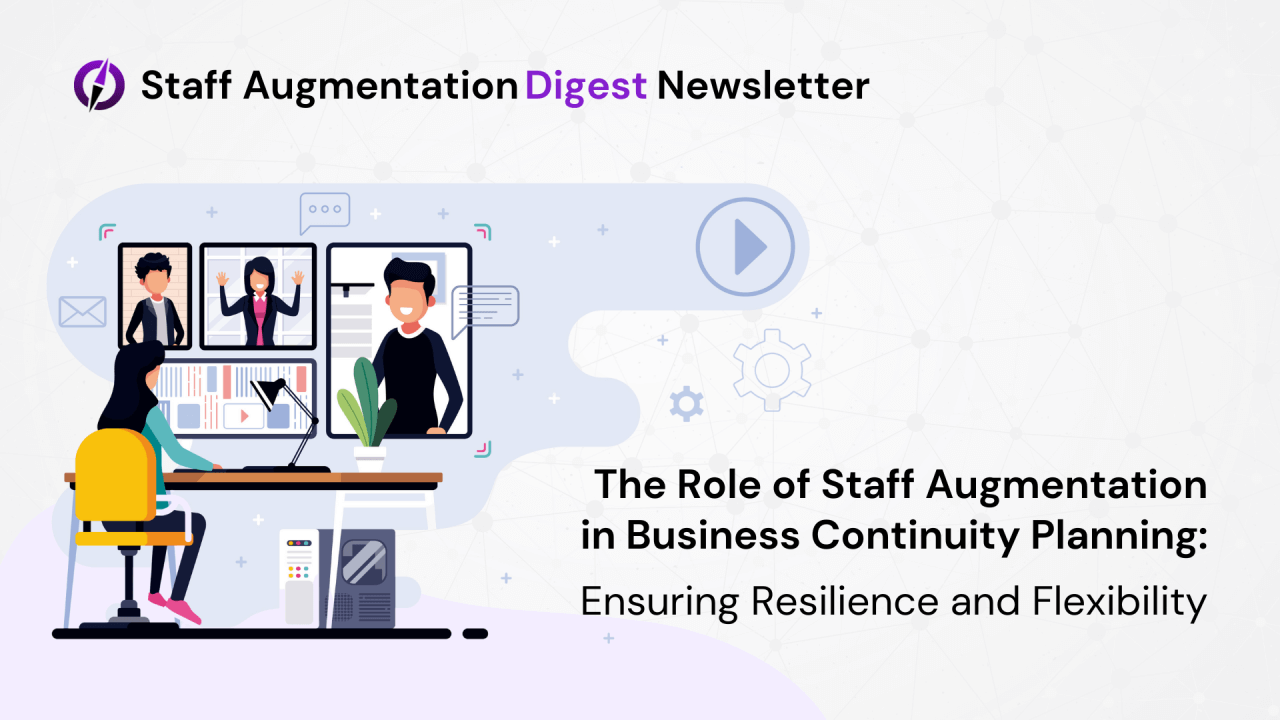Today, we’re exploring a critical aspect of business continuity planning: The Role of Staff Augmentation. In an unpredictable business landscape where disruptions are inevitable, ensuring resilience and flexibility in workforce management is paramount. Join us as we delve into how staff augmentation plays a vital role in business continuity planning, safeguarding operations and maintaining productivity during times of uncertainty.
Business continuity planning involves preparing for a wide range of potential disruptions, including natural disasters, economic downturns, and public health crises. Traditional staffing models may struggle to adapt to sudden changes in demand or unforeseen circumstances, leading to disruptions in service delivery and productivity losses. Recognizing these challenges underscores the importance of integrating staff augmentation into business continuity strategies.

Let’s explore four strategies for effectively integrating staff augmentation into business continuity planning:
- Flexible Workforce Scaling: Leverage staff augmentation to scale your workforce up or down quickly in response to changing business needs. By partnering with staffing agencies or outsourcing firms, businesses can access a pool of skilled professionals on an as-needed basis, ensuring flexibility and agility in workforce management.
- Specialized Expertise Access: Tap into specialized expertise through staff augmentation to address specific challenges or gaps in your existing workforce. Whether it’s IT support during system upgrades or customer service during peak seasons, staff augmentation enables businesses to access the right talent at the right time, enhancing resilience and operational continuity.
- Remote Workforce Enablement: Utilize staff augmentation to build and support remote work capabilities, allowing employees to work from anywhere in the event of office closures or travel restrictions. By providing remote access to augmented staff, businesses can ensure continuity of operations while prioritizing employee safety and well-being.
- Cross-Training and Knowledge Transfer: Foster cross-training and knowledge transfer initiatives between in-house teams and augmented staff to build redundancy and resilience within the workforce. By sharing skills and expertise, businesses can mitigate the risk of knowledge silos and ensure continuity of critical functions during staff shortages or disruptions.


